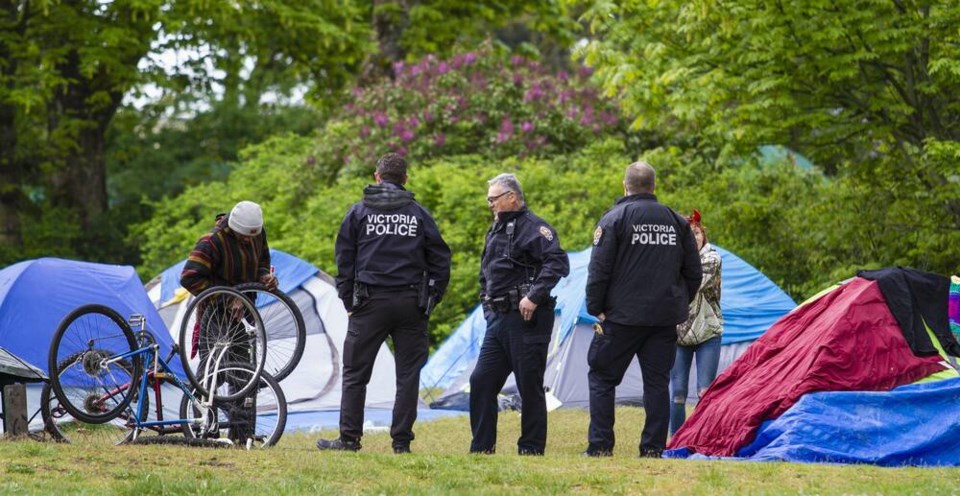A commentary by the mayors of Saanich, Victoria, Kelowna, Richmond, Kamloops, New Westminster, Prince George, Nanaimo, Coquitlam and Vancouver.
We’re on the brink of winter. Some of our most vulnerable residents, with the most complex needs, are still out on our streets, even as the winds howl and the winter rains and snow will soon start to fall.
These residents aren’t able to live successfully in the existing supportive housing options. Their needs are too high. They require more support than what is currently available, making their housing retention rates low.
In some cases, their behaviour can be so disruptive that it affects other residents and puts housing staff in dangerous situations. Ultimately, this can end in an eviction and creates a cycle where they end up back on our streets.
Our inboxes have been filling up for well over a year with angry mail from our residents and business owners. We’ve each been told that we’re “the worst mayor ever” and that we’re ruining Victoria, or Kelowna, or … fill in the blank.
We also hear from family members who know their loved ones are dying on our streets.
The fact that people with concurrent mental-health and substance-use issues, trauma and acquired brain injuries are left out on our streets isn’t a Prince George, or a Nanaimo, or a Kamloops problem; it’s an urban problem, it’s a health problem, and it’s an urgent problem.
This critical health issue is compounded by the fact that even when people with obvious needs commit a crime — sometimes as a plea for help — they are released back into the community without any supports. This needs to change.
We believe there should be a “no wrong offramp” approach to breaking the cycle that keeps people stuck in the criminal justice system. By this we mean that if someone is arrested for a crime, but obviously presents with a mental-health or substance-use challenge, trauma or an acquired brain injury, they should be given the health supports they need.
What services and supports are they currently offered when they are released on bail, given that these cannot be mandated prior to conviction? What are the options for treatment, counselling or other services that form part of the sentencing process rather than just cycling people back through prison and the court system?
The situation on our streets tells us that these questions have likely not been asked, and if they have, they’re not being adequately answered.
Too often we see that the truly vulnerable and those who prey upon them — the repeat criminal offenders — treated in the same manner. We need the support of the justice system to help ensure that the appropriate level of accountability is applied to those who offend, so that those who are in need of other forms of support can access the right services.
We know that ministers David Eby, Sheila Malcolmson, Adrian Dix and others are working to set up complex-care programs. We’ve been working closely with them. We can’t wait much longer.
Our residents and business owners are frustrated, our police departments and RCMP detachments are overworked. The families of the vulnerable are frightened for their loved ones.
And, as we put together our 2022 budgets, each of our cities is spending millions of dollars on Band-Aid solutions such as more bylaw officers, more policing and more money for parks cleanup and street cleaning.
It’s not all doom and gloom. Many of our downtowns are experiencing significant building booms with new rental buildings, condos and offices under construction. There’s investor confidence in the future of downtown British Columbia.
But we worry that unless our most vulnerable residents with the most complex needs have somewhere better to call home than a tent on a boulevard or a sleeping bag in a doorway, our economic recoveries from the pandemic will be stalled.
We also worry that the frustration our residents and businesses feel will lead to further division and unnecessary stigma against people who need more help than is currently available.
While complex-care housing may not be a silver bullet, we need a new approach. And we need it now.



